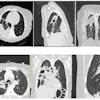BASF, in collaboration with OrganoBalance, announced this week that it is gearing up to commercialize pro-t-action, a probiotic product designed to eliminate caries-causing bacteria from the mouth.
Findings from research conducted during the development of pro-t-action will be presented this week at the International Association for Dental Research (IADR) meeting in Miami, according to the company.
Based on probiotic microorganisms (scientific name: Lactobacillus), the active ingredient in pro-t-action binds to and eliminates caries-causing bacteria (Streptococcus mutans) from the mouth. OrganoBalance, which specializes in microbial strain development and microbiological screening, worked with BASF to identify a particular strain of Lactobacillus paracasei. BASF has since developed a proprietary production process enabling the active ingredient to be easily integrated into everyday consumer products such as toothpaste, mouthwash, candies, lozenges, and chewing gums used for daily oral care.
According to the companies, testing has shown that the active ingredient, L. paracasei, in pro-t-action has the unique ability to precisely target the caries-causing bacteria and bind exclusively to them, and clumping them. When aggregated and grouped together in this way, the bacteria can be flushed out of the oral cavity by normal swallowing or rinsing. Needing to remain in the oral cavity for only 10 seconds to become active, pro-t-action is tasteless, odorless, and pH-neutral, and helps to maintain the healthy and beneficial microflora in the oral cavity, according to BASF.
Research on L. paracasei for the development of pro-t-action was conducted as a joint effort by OrganoBalance and BASF, in collaboration with the School of Dental Medicine at the University of Connecticut Health Center. The findings of the research, led by Jason Tanzer, D.M.D., Ph.D., University of Connecticut Health Center, and those of Dr. Christine Lang, managing director of OrganoBalance, will be presented at the IADR conference held in Miami April 1-4.
Dr. Lang will provide details into the research conducted to identify the appropriate strain of Lactobacillus with the unique ability to bind specifically to Streptococcus mutans. Dr. Tanzer will present his work focusing on the blinded testing that was conducted to reveal a significant reduction, as much as 40%, in the level of colonization of Streptococcus mutans on the teeth, along with a substantial reduction of caries.
"The laboratory tests conducted at the University of Connecticut Health Center demonstrated the ability of the L. paracasei used in pro-t-action to significantly reduce the levels of decay up to 27 percent on average," said Dr. Tanzer in a press release. "These findings, which are the logical consequence of the ability of selected L. paracasei to specifically clump Streptococcus mutans, present an intriguing new approach to controlling this miserable, prevalent, and costly disease, tooth decay."
Copyright © 2009 DrBicuspid.com















